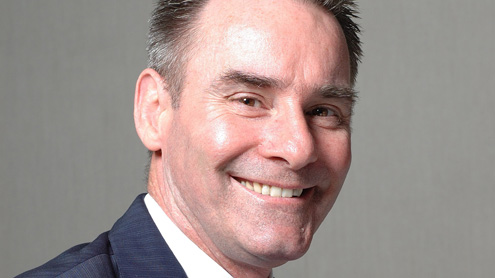BRUCE MCKENZIE
Chief Operating Officer – Australasia
InterContinental Hotels Group

When ex-Malaysian Airlines CEO Idris Jala quipped there’s nothing like a good recession to get your business into shape, he’d already brought the business through one extraordinary change process – only to face the need for further reorganisation and cost cutting in light of the GFC. Despite their dire situation however, Jala – a celebrated change agent – publicly recognised the need to keep immediate needs in perspective of longer-term goals for the 70-odd year old company.
While the MAS situation is an extreme one compared with that of most of the major operators in our own sector, it exemplifies the dilemma we’ve all found ourselves in over the last 18 months. If nothing else, 2009 has been a year of embracing the realities of managing short term needs while keeping sight of longer term objectives.
Even though there’s no doubt things are picking up for us in Australasia faster than most other parts of the world, there are likely to be examples of operators and owners who will suffer as a result of focussing solely on short-term responses to the challenging economic conditions.
In seeking to avoid this trap, we’ve focussed on protecting the balance between delivering returns today and continuing to build our business capability ensuring we have a stronger market position next week. Recent events have demonstrated how tempting it is to forego that balance in favour of an immediate competitive advantage, which ultimately damages business prospects over the longer term.
Of course, we’ve had the luxury of being better able to maintain balance in the first place. Strong operating systems and expertise coupled with powerful brands, marketing channels and location network are insulation against the storm that surrounds every low point in the economic cycle.
Our ultimate objective over the last couple of years has been to use the current economic climate to our advantage. The restructuring of our Asia Pacific operations into two separate business units has meant we’ve dedicated more resources to Australasia and Southern Asia, while the Greater China team focuses on the 118 properties under their care and the 100 more in the immediate pipeline.
It’s also meant we can cut costs constructively and in a sustainable manner, while still improving the customer experience and the engagement of our hotel and corporate teams. As a result, we’ve been able to live up to our promise to customers, continue to provide highly competitive career opportunities for our staff, and deliver strong returns for our owners.
There is no doubt business is picking up across the board. The next few months will be telling, and will very likely demonstrate which operators have managed to maintain the balance required to remain competitive as the cycle lifts.

